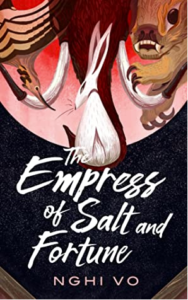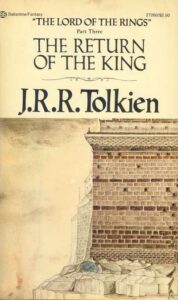Being a comic book fan from way back, it’s often difficult for me to find prose-form entertainment featuring my beloved comic book characters that is as compelling as the comic book versions themselves. But I love what Titan Books does with its short story anthologies and, like much of America, I’ve been made a Black Panther stan by the excellent Ryan Coogler film, so I leapt at the chance to read and review this volume. And y’all, I have Thoughts.
So if you’re just wanting a taste of Wakanda in the form of short pieces where T’Challa and his circle have various interesting adventures, incorporating other parts of the Marvel Universe that have yet to appear on-screen (Namor, heyo!) then this is the collection for you! And if America is all you know of the world, then you might enjoy this collection unreservedly. But as a first-generation immigrant, I winced through a first part, especially, that didn’t seem to grasp the delicate balance that Mr Coogler et. al. achieved with their vision of a proud nation that had never known the yoke of imperialism, showing the way forward to a future of Black excellence, yet still needing to reckon with the costs of its isolationist past. Ofc, lots of people came out of the movie thinking Killmonger was right, so I guess I shouldn’t have been surprised by the need for Americans to flex on Wakanda here?
The first few stories are all about how America(ns) can fix Wakanda and while I guess this was necessary to draw in the America First crowd, I was put off by the joy taken in American exceptionalism, as if that kind of nonsense isn’t the driving force behind our own colonialist past and present. It was a relief to get a story thrown in here from Killmonger’s point of view, in Cadwell Turnbull’s excellent Killmonger Rising. At least Killmonger comes by his desire to change Wakanda out of genuine pain, and not just from a concept that would be deemed white saviorism were the protagonists a different color. I guess it’s just weird to me that authors feel the need to tear down Wakanda, a fictional nation, in order to make themselves feel better about America, an actual place where change, however slow and painful, can be affected. “See, it’s not that great!” is an unproductive attitude when it comes to a place meant to be an ideal to work towards.
The jingoism fades as the book progresses, but oh golly, do I wish more attention had been paid to detail, especially by the American authors. At one point, Okoye gets a report that kidnappers (who all had very Muslim names, like, okay, thanks) were speaking “Nigerian” and my eyes rolled so hard. You mean English, the official language of Nigeria? Or Hausa, Igbo, Yoruba, or one of the many languages spoken by one of the many ethnicities of that country? Even in another story, that I otherwise enjoyed, Troy L Wiggins’ What’s Done In The Dark (featuring a very awesome guest star,) I was boggled by the idea that you’d have to fly south from anywhere in DC, through Capitol airspace, to get to Lanham, where my husband works (an especially weird error given that editor Jesse J Holland lives in Bowie, which is basically a town over from Lanham!)
Things definitely pick up by the time we get to L. L. McKinney’s Legacy. I’ve loved her short story work, even if I find myself much iffier about her longer-form prose, and was so pleased to find here another of her trademark kickass stories about a brave young woman, in this instance on her way to Wakanda for the first time. Linda D Addison’s Shadow Dreams was also a great story about a young woman who’s just been accepted to the Dora Milaje, who finds herself falling behind in training till given an opportunity that comes with shadowy strings attached. Harlan James’ Bon Temps was also a really fun, really lived-in tale that showcases Shuri’s struggles with her self and position without making her come across as a completely self-absorbed brat (also the guest stars were too awesome!) Bon Temps also brought up issues that dovetailed nicely with Mr Holland’s own entry in this volume, Faith, where I enjoyed T’Challa’s conversations with the Reverend Rutherford far more than his “banter” with the deeply annoying Neffie. Thankfully, Neffie seems to have been created solely for the purpose of this book, which is something I can’t say for the guest star of Tananarive Due’s Return Of The Queen. I guess other people bought into the whole Storm + Black Panther thing, but I think it’s weird when supes get together like that, like a Black version of Superman and Wonder Woman, which I also found deeply uninteresting. What’s grodier to me in the T’Challa & Ororo pairing is the whole royal lineage “mystique”: as I grow older, my impression of hereditary monarchy continues to dim, to the detriment of my poor best friend, who just wants to play Lord Of The Rings Online with me without having to hear me scold the Rohirrim for sacrificing themselves for a family of overconfident dumbasses, followed by my musings on how the entrenchment of wealth and education in olden times meant that the best leaders often came from the ruling classes simply because they had the resources to learn such skills… but that’s another rant for another time.
The last two stories of this volume are among my favorites, tho I think it would have been better to end the book with Suyi Davies Okungbowa’s thoughtful, hopeful Stronger In Spirit than with the downer ending of Temi Oh’s Zoya The Deserter. Interestingly, those tales were also written by non-American Black writers, providing an altogether different perspective from how the book began. In general, the stories I enjoyed here were the ones that didn’t have a strong implication of how Wakanda needs America in order to matter. I actually enjoy the critiques of Wakanda — in matters of history, politics and faith — but the whole “only I, an American, have the answers that will save you” missed the entire point of a Wakanda unbeholden to foreigners. Save the nationalism for the Luke Cage collection (which I’m hoping will be a thing if I put that thought out into the universe!) (Maybe not so much with the actual nationalism tho.)
Black Panther: Tales Of Wakanda edited by Jesse J. Holland was published March 9, 2021 by Titan Books and is available from all good booksellers, including
Want it now? For the Kindle version, click here.





